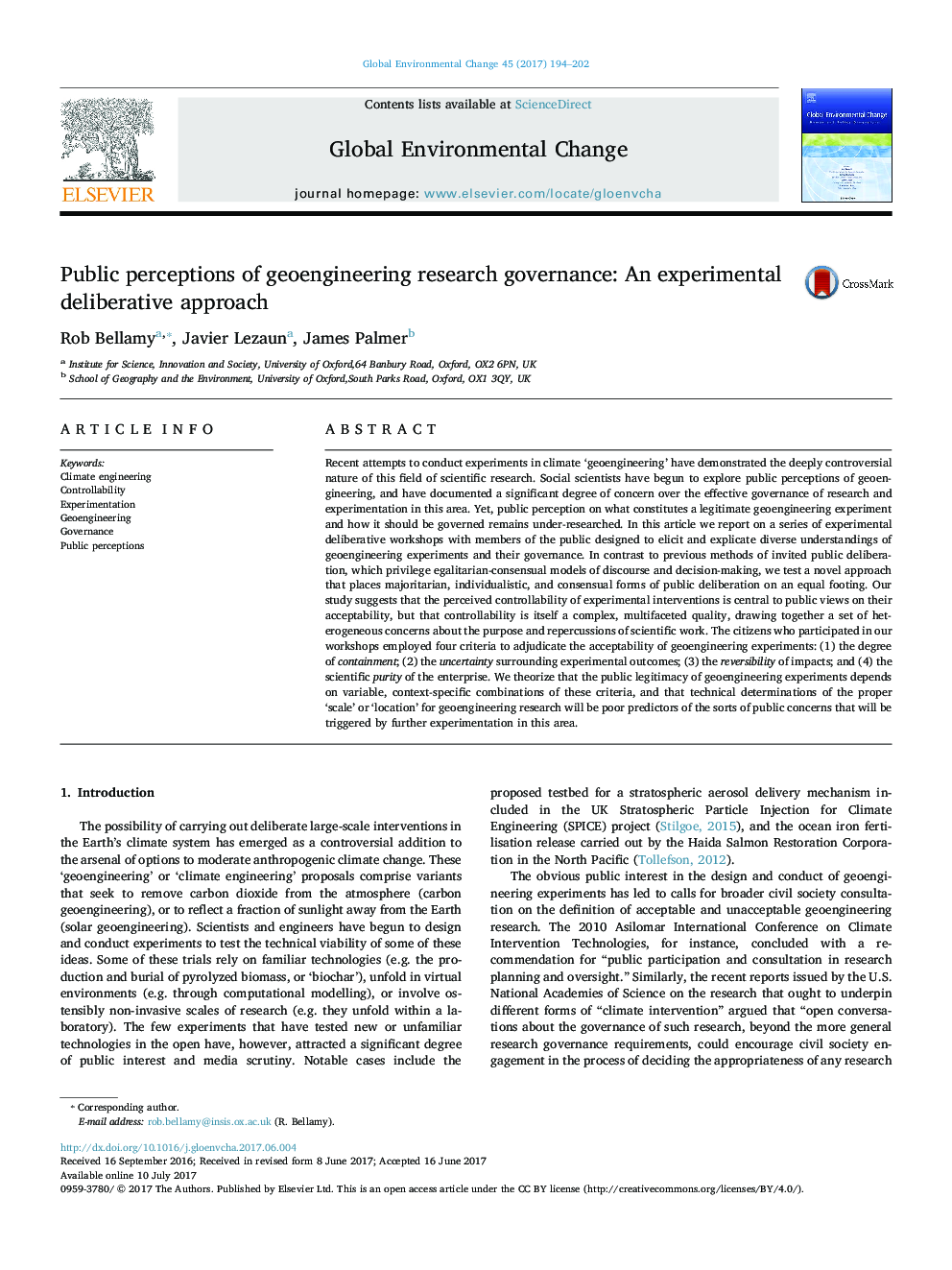| Article ID | Journal | Published Year | Pages | File Type |
|---|---|---|---|---|
| 5115914 | Global Environmental Change | 2017 | 9 Pages |
â¢Public perceptions of geoengineering experiments were explored in three workshops.â¢Majoritarian, consensual and individualistic deliberations were experimentally created.â¢The perceived controllability of experiments is central to public acceptability.â¢Legitimacy of experiments will depend on combinations of four controllability criteria.â¢Technical determinations of scale or location will be poor predictors of public concerns.
Recent attempts to conduct experiments in climate 'geoengineering' have demonstrated the deeply controversial nature of this field of scientific research. Social scientists have begun to explore public perceptions of geoengineering, and have documented a significant degree of concern over the effective governance of research and experimentation in this area. Yet, public perception on what constitutes a legitimate geoengineering experiment and how it should be governed remains under-researched. In this article we report on a series of experimental deliberative workshops with members of the public designed to elicit and explicate diverse understandings of geoengineering experiments and their governance. In contrast to previous methods of invited public deliberation, which privilege egalitarian-consensual models of discourse and decision-making, we test a novel approach that places majoritarian, individualistic, and consensual forms of public deliberation on an equal footing. Our study suggests that the perceived controllability of experimental interventions is central to public views on their acceptability, but that controllability is itself a complex, multifaceted quality, drawing together a set of heterogeneous concerns about the purpose and repercussions of scientific work. The citizens who participated in our workshops employed four criteria to adjudicate the acceptability of geoengineering experiments: (1) the degree of containment; (2) the uncertainty surrounding experimental outcomes; (3) the reversibility of impacts; and (4) the scientific purity of the enterprise. We theorize that the public legitimacy of geoengineering experiments depends on variable, context-specific combinations of these criteria, and that technical determinations of the proper 'scale' or 'location' for geoengineering research will be poor predictors of the sorts of public concerns that will be triggered by further experimentation in this area.
